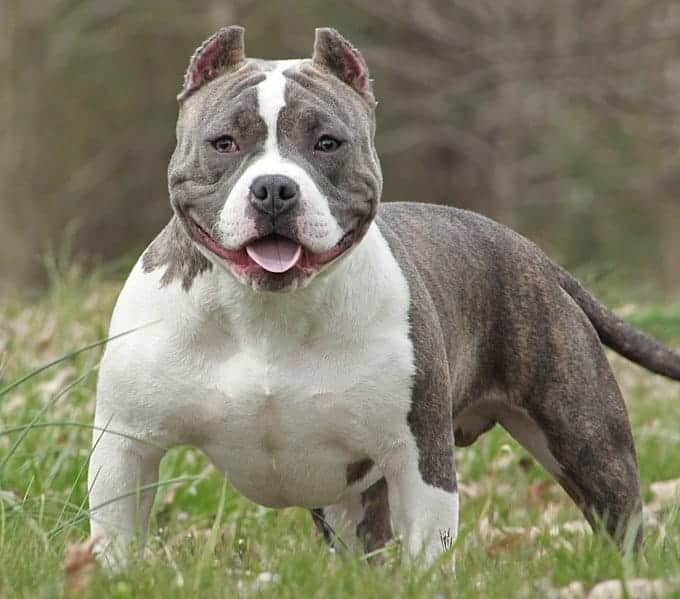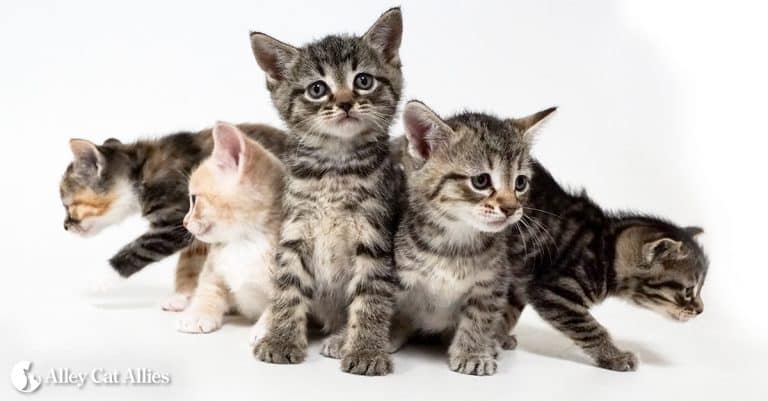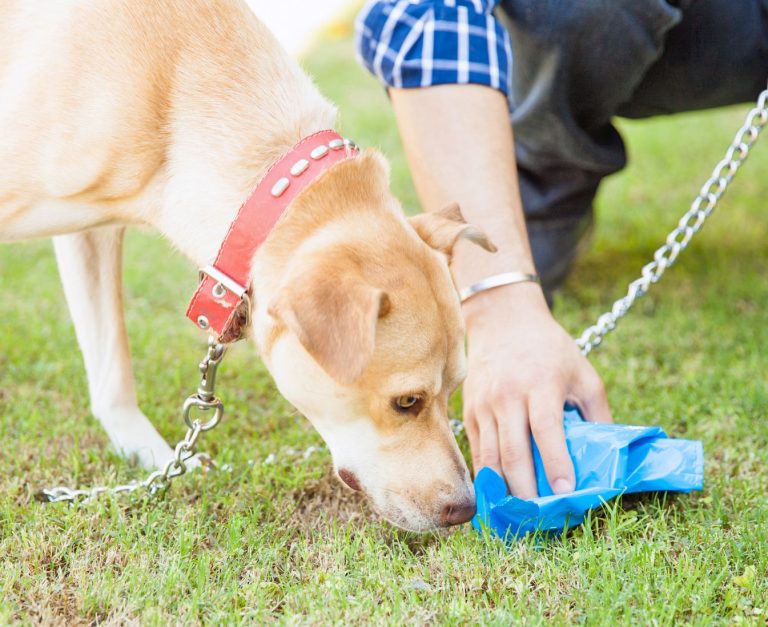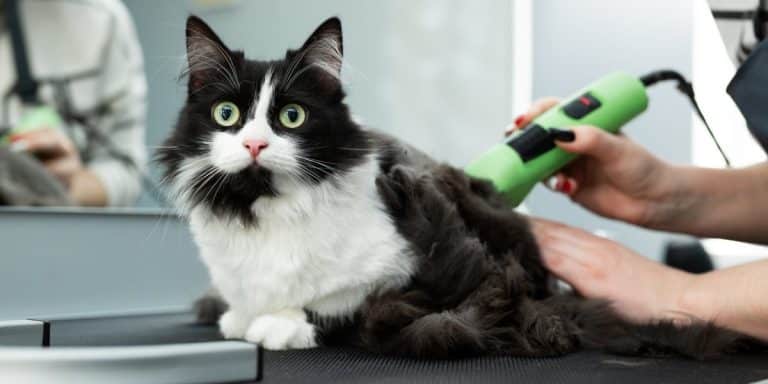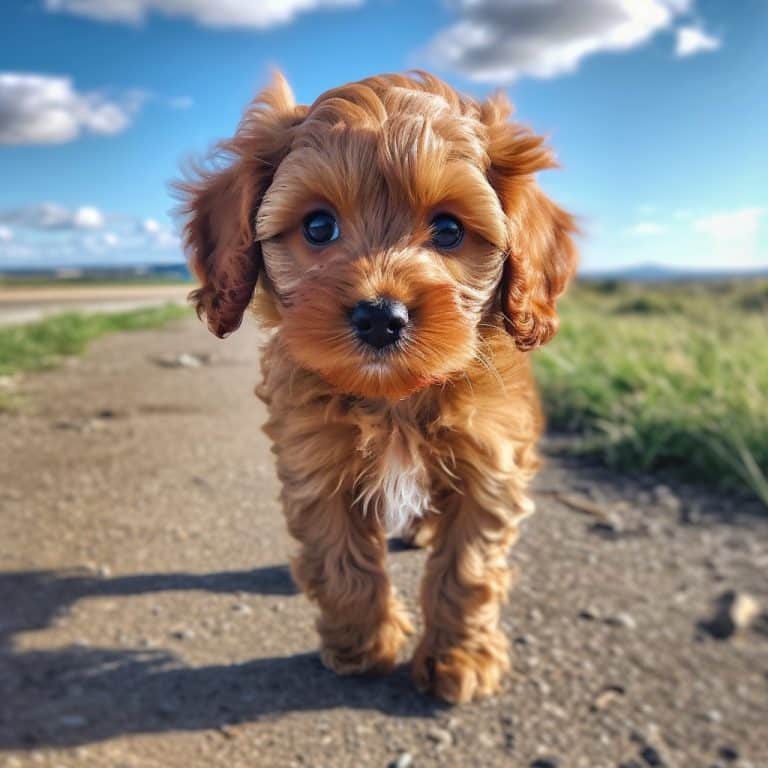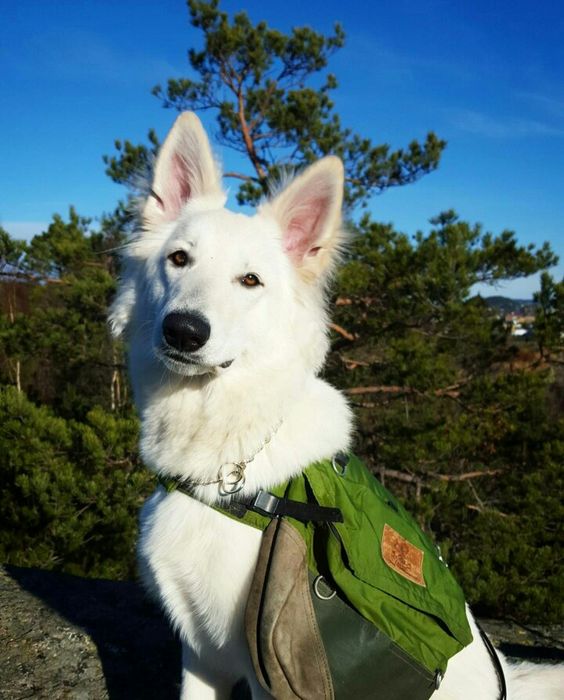Pocket Pitbull: A Simplified Walkthrough of a Mini Bully
Ever heard of ‘pocket pitbull’? Well, it’s a common breed across the United States, yet a popular choice from the other breeds. Thinking about what sets it apart and how come it’s a good choice for you, you’re at the right place; we’ve covered all.
If you ever heard of American Pit Bull Terriers, the pocket pitbull is a smaller version of the same, being loyal, affectionate, and having a strong build. Though they are of small size, these pit bulls are widely renowned owing to their big personality and belonging to great pet families. Further, the secret to their popularity lies in their size and friendly nature.
But it’s just a glimpse of the beloved pet; explore below to dive into their characteristics, nature, and how they are a good fit to be a pet of yours.
Pocket Pitbull – An Overview
1. Size
Size is probably among the characteristics that define a pocket pitbull. These are widely renowned for their small size and healthy body, providing them with a unique and fascinating look that appeals to many dog lovers. Generally, pocket bullies have a height in the range of 12-16 inches, which is equal to 30-41 centimeters. This height places them on the smaller end of Pitbull Terrier size, making them easily manageable regarding living space and exercise needs.
Usually, pocket pit bulls weigh anywhere between 11-22 pounds (5-10 kilograms). Remember, the range may vary slightly depending on factors such as genetics and gender. The noticeable part is that they look small but still possess a husky appearance that makes them easily recognizable as their Pit Bull counterparts.
Is this height and weight a good -fit? Absolutely, the small size of pocket pit bulls makes them suitable for owners residing in apartments or homes with limited space. They are further handy and manageable, which is beneficial for families who are frequent relocators. Additionally, their husky body greatly complements their small size, making them attractive and cute, and they don’t require too much space.
2. Characteristics
- Muscular Build: The cute pet is well known for their strong and muscular body, which backs up their robust appearance.
- Short Coat: Pocket pit bulls have short, smooth coats that are easily maintainable.
- Energetic: Pocket bully breed of dogs are extremely active; therefore, they require regular exercise.
- Loyal and Affectionate: Pocket Pitbulls are widely known for their loyalty and devotion. Adding on, many of them are affectionate, and human friendship is utmost.
- Intelligent and Protective: They fall under the category of smart dogs and have the capability to excel in various training activities. This also makes them good watchdogs who are protective of their families.
- Playfulness and Socializing: As said above, pocket pit bulls possess friendly behavior and are playful. Further, a properly trained pitbull socializes well with other pets. Having known about the characteristics, you might wonder if both male and female pocket pit bulls possess the same features. Well, not completely. Here are the main features that will help distinguish between the two:
- Size: Male pocket pit bulls are found to be slightly larger and heavier when compared to their female counterparts.
- Head Shape: Usually, males have a broader head with noticeable muscle development, while females tend to have more refined structures.
- Behavior: He-pocket pit bulls are dominant; in contrast, females are polite and generous.
The Personality of Pocket Pitbull
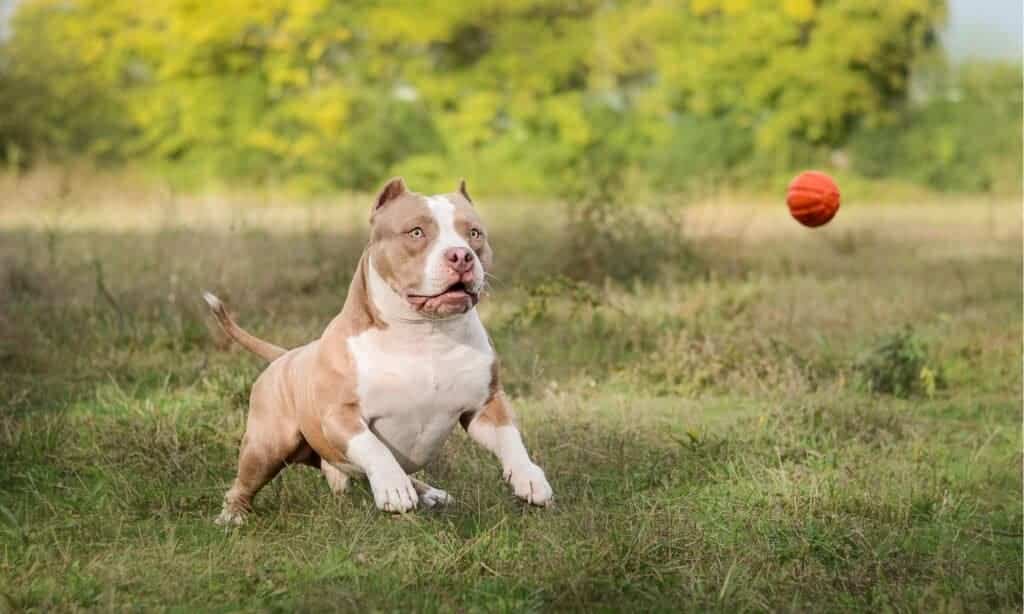
As with any other dog, the personality of a pocket pit dog may vary depending upon the genetics, their upbringing, and how much they socialize. However, several features remain the same in many pit bulls, signifying their personality.
- As stated, pocket pit bulls are widely famous for their loving and caring nature. They are also called ‘velcro dogs’ simply because they enjoy being close to their human family members.
- They are very loyal and devoted towards their owners, forming strong bonds and often eager to please.
- They are of a playful and energetic nature, and therefore, interactive games like fetch back up for their physical and mental health.
- Not every but properly socialized pocket pitbull is friendly with other dogs. It’s better to make them sociable at an early stage.
- Pocket pit bulls possess strong protective instincts and, therefore, work wonders as a watchdog. They will alert you of any threats or unusual activity near your home.
- These homies are intelligent, active, and hence trainable. Further, they are confident and self-reliant, contributing well to their strong character.
Unknown Facts About Pocket Pitbull
- Pocket Pitbull’s exact origin is still unknown, but they are generally considered a smaller version of the American Pitbull Terrier.
- Other names, including Miniature pitbulls, mini pitbulls, and pockabulls, often call them.
- Though they are popular, unlike other breeds, they aren’t officially recognized. They are considered under the category of American Pitbull Terrier.
- Mini Pitbull height ranges between 12-16 inches at the shoulder level, and weight varies between 11 to 22 pounds, which is smaller than the standard pitbull terrier.
- They are among fewer breeds with a robust body and muscular and athletic build despite their small height.
- Pocket Pitbull comes in a variety of coat colors, which vary from brindle solid to multi-color patterns.
- They may be prone to certain health issues which are common in American Pitbull Terriers. This includes hip dysplasia and skin conditions. However, regular check-ups can help avoid the same.
- Pocket Pitbulls have a lifespan of 11-13 years when properly cared for.
Controversy Related to Pocket Pitbull
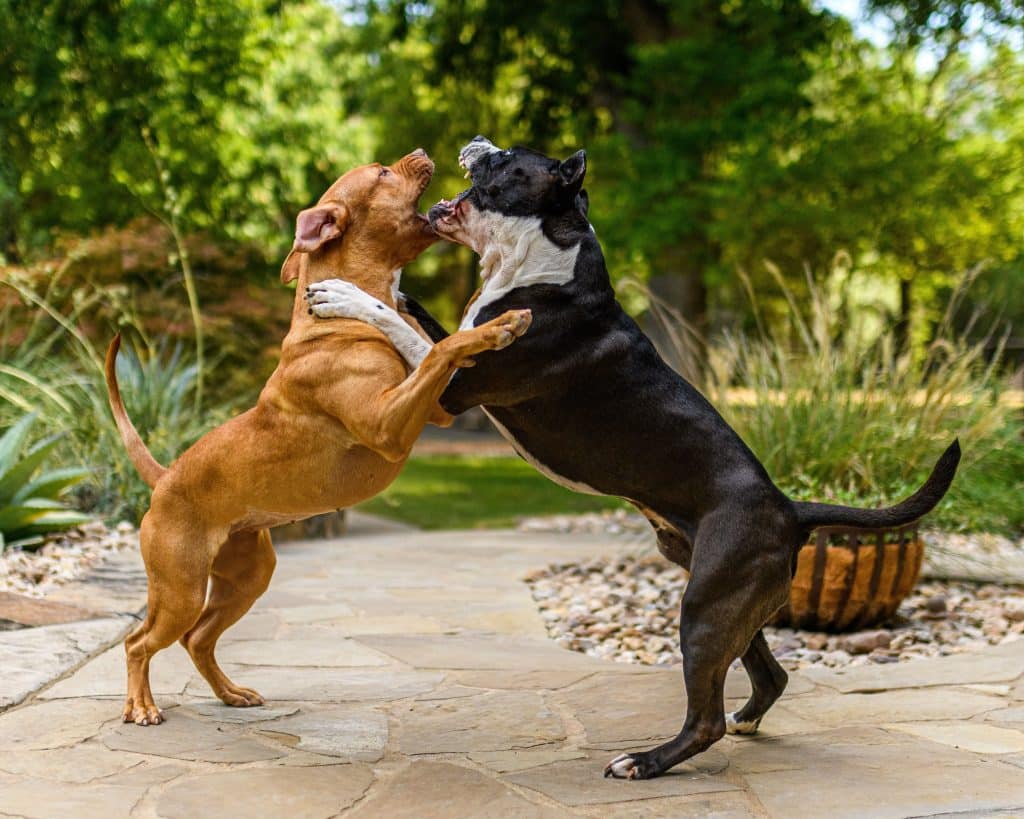
- Pocket pit bulls and their other types are considered aggressive and dangerous dogs, leading to fear and discrimination.
- Many regions have implemented breed-specific legislation, meaning pocket pit bulls are banned or restricted in certain areas or may require special permits in public.
- Many think that pocket pit bulls can be owned by individuals who do not provide proper training and care. But in reality, it can lead to behavioral issues.
- However, not many pocket pit bulls are involved in dog attacks, which gives rise to their controversial behavior.
Price of Pocket Pitbull
Pricing of any dog breed varies on several factors, and pocket pit bulls are no exception. However, on average, pocket pitbull costs between $800 to $2500, but it’s important to note that prices may be outside of this range depending upon the breed, the seller, and more. Here are some factors which will enlighten you on the same:
- Breeder: Prices vary with breeders or sellers. Many breeders prioritize health and follow proper breeding practices and hence charge more for their upbringing pocket pit bulls.
- Pedigree: The kind of food a pitbull is fed significantly impacts the pricing. Many pocket pit bulls are fed high-quality food for show champions and hence demand higher prices.
- Coat Color: Pocket Pitbull comes in various color coat colors and markings, some of which are in huge demand and, hence, more expensive.
- Health Screening: Top sellers use health screening tests on their breeding dogs, which reduces the risk of any genetically passed health issues. If pocket pit bulls are passed with any such measures, they may demand more prices.
- Location: Prices of pocket pit bulls vary greatly with location. In some parts, they are widely available, and in some not.
- Age and Training: Older puppies or dogs are generally trained, which is further a call for a bit of a high pricing structure.
- Demand: The demand, i.e., the popularity of pocket pit bulls, impacts pricing. This means in areas of high demand, they may cost more.
- Inclusions: This is dependent on the seller. Many sellers add the pricing of vaccination, deworming, and other health measures as a part of the package, which results in cost elevation.
Adopting a Pocket Pitbull
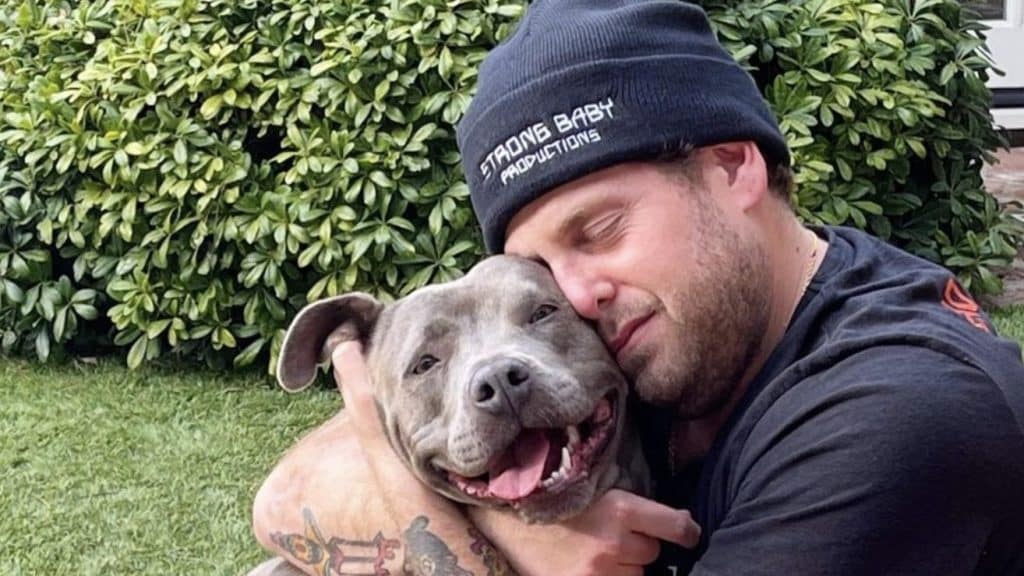
Irrespective of your chosen breed, adopting any dog, including a pocket pitbull, requires careful consideration. Here is a list of enlightening things to consider before adopting a Pocket Pitbull:
- Space: Probably the foremost thing to consider. Before adopting a Pocket Pitbull, consider your living space and whether it can accommodate a pet with high energy levels.
- Breed: Whichever breed you’re going to choose, research thoroughly. Make sure their needs align with your capabilities.
- Time: These require time and attention for daily exercise and training, so think about whether or not you’re ready to commit to these requirements.
- Financial Responsibility: Owning a pocket pitbull involves many extra expenses such as food, care, grooming, and other requirements. Remember, pocket pit bulls have a lifespan of 11-13 years, so it’s a long-term financial commitment. Think and choose wisely.
Common Health Issues in Pocket Pitbull
American Pit Bull Terriers are susceptible to some health issues, and since pocket pit bulls are a smaller version of them, they are prone to the same.
Here is a list of the most common health issues in pocket pit bulls:
- Hip Dysplasia: This occurs when the hip joint of a pocket pitbull doesn’t grow properly, leading to arthritis and pain.
- Skin Problems: They are prone to various skin conditions, which include allergies, hot spots, and other skin infections. Veterinary care is the ideal solution.
- Obesity: Pitbulls enjoy eating and, therefore, are prone to obesity (excessive weight). Proper diet and regular exercise help refrain from any such conditions.
- Cataracts: Not frequently found, but sometimes pocket pit bulls suffer from an eye problem that leads to partial vision. Refer to veterinary experts as soon as possible for proper treatment.
How to Ensure Pocket Pit Bulls’ Health?
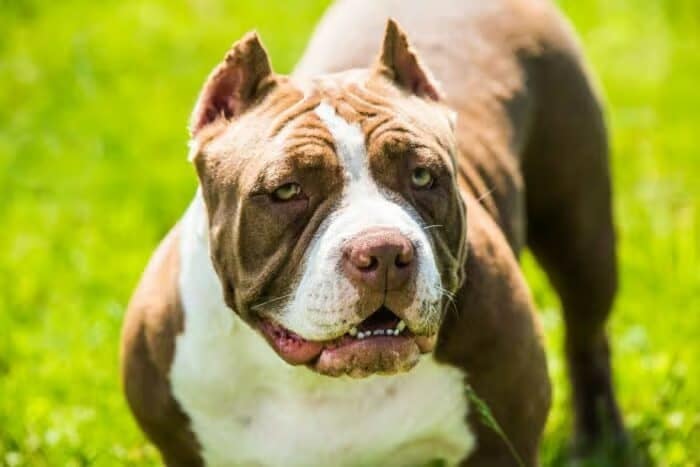
- Firstly, regularly visit a certified veterinarian to learn about your pocket pit bull’s health.
- Ensure your pitbull has all the necessary vaccinations and is up-to-date with the same; this will help refrain from any common disease.
- Food matters; feed them with balanced and high-quality dog food by their age and activity level.
- Make them exercise daily to keep them cheerful while refraining from obesity issues. Further, grooming their short coat regularly backs up good hygiene.
- Socializing is a great way to keep your pocket pitbull comfortable around other animals, ensuring their mental health and cheerfulness. It’s advisable to get them engaged in some training activities, for good behavior and health.
- Lastly, be cautious with signs of illness or discomfort; if required, seek veterinary help.
Pros and Cons of Pocket Pitbull
Pros
- Pocket Pitbulls are small, making them suitable for smaller living spaces, say an apartment.
- They are adaptable and, hence, can easily mix up with different environments like a city or countryside.
- These mini pitbull dogs are sincere and affectionate towards their owners, making them excellent companions.
- They are easy to groom, and they fall under the low-maintenance pet dogs category.
- They are energetic and playful, making them a good choice for families with active lifestyles.
- These are naturally protective of their families or owners, backing up for good home security.
- Intelligent canine that responds well to training, making them suitable for obedience and agility activities.
Cons
- Due to their husky appearance, they are often considered dangerous and are up to some extent.
- Higher energy levels mean they require regular exercise and engaging in other activities, which may be tough for busy owners.
- Pocket pit bulls require more effort in socialization. Early socialization is helpful and helps refrain from potential aggression towards other pets and dogs.
- They are prone to certain types of health issues like hip dysplasia and skin problems, which need to be monitored.
- Pocket Pitbulls are restricted in some regions.
Conclusion
All in all, pocket pit bulls are commonly found, but they possess some features that make them stand out from others. Their husky appearance with little height is what makes them look adorable and, hence, attractive to many dog lovers. But as with dog breeds, they also require special care and attention for proper physical and mental growth.
The information mentioned above enlightens us on the same; we hope it helps and is sufficient to meet your needs. If you have any queries regarding the same or are confused about making an informed decision, feel free to reach out to us, and we’ll respond promptly.
Share in the comment what pocket pitbull you have and how long it has been to your companionship.
Frequently Asked Questions
What is a Pocket Pitbull?
A pocket pitbull is a smaller crossbreed of the American pit bull terrier and the Patterdale Terrier. Generally, pocket pit bulls have a height of 12-16 inches and weigh between 30-60 pounds, with a lifespan of 11-13 yrs. Remember, their growth depends heavily on upbringing, i.e., the kind of food they get and other activities.
Are Pocket Pitbulls Good Family Pets?
Absolutely, but depends upon the family lifestyle. Pocket pit bulls are excellent family pets when they are properly trained and socialized. They are loyal, affectionate, and of a protective nature, but training and supervision are must-haves to ensure they behave well around people, children, and other pets.
Do Pocket Pit Bulls Require Daily Exercise?
Pocket pit bulls fall under the category of active dog breed, and therefore, regular exercise is their basic need to stay healthy and cheerful. Daily walks, playtime, and socializing help prevent boredom. Further, providing them with a good space to run ensures proper mental growth and behavior.
How to Care for a Pocket Pitbull?
Pocket Pitbulls are no exception; they require regular veterinary check-ups and vaccinations. However, they are susceptible to health issues like hip dysplasia and skin conditions; therefore, it’s better to take necessary preventive measures. Adding on a proper diet, grooming, and dental care is required for their long and healthy life.

